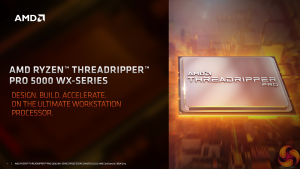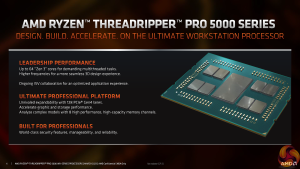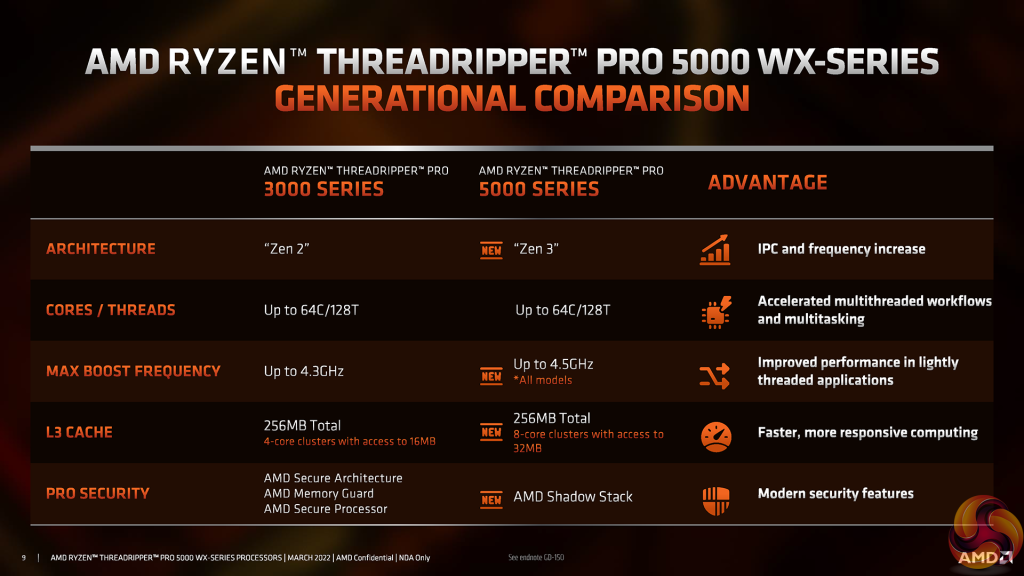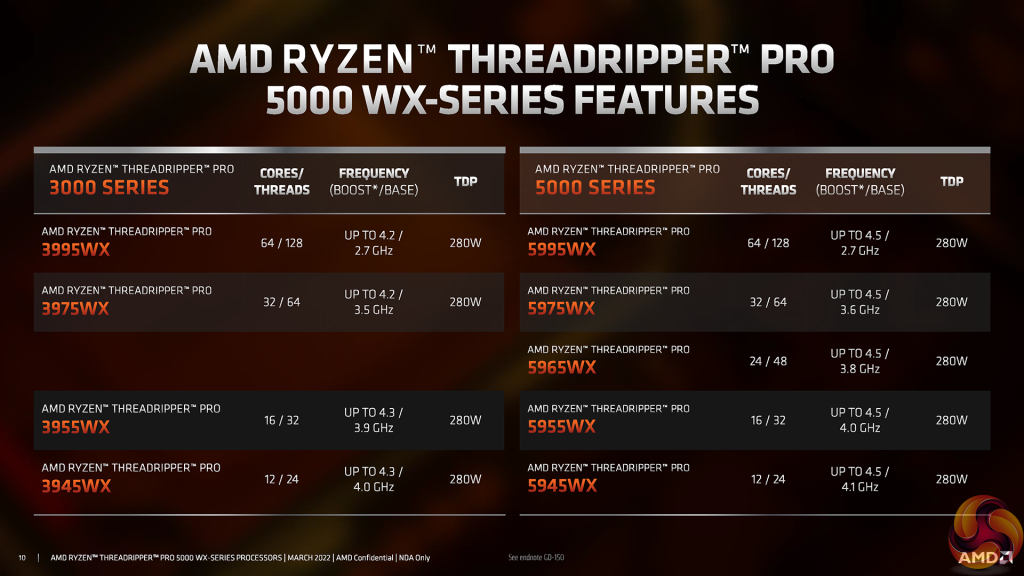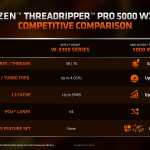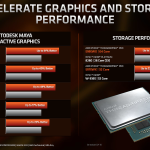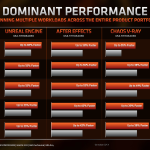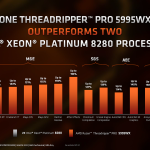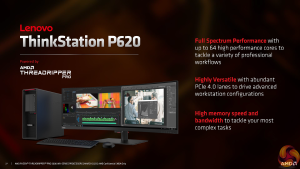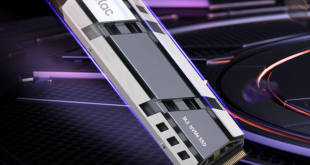AMD has announced the release of its new Ryzen Threadripper Pro 5000 WX-Series processors featuring an update to Zen 3 architecture. The professional-orientated Ryzen Threadripper Pro 3000 WX-Series chips based on Zen 2 proved a hit for workstation users in domains such as rendering and animation. AMD is aiming to repeat that success, but this time with the company’s latest desktop processor architecture.
According to AMD’s numbers, the demand for computational power in workstation applications is continuing to rise. And this is unsurprising with applications in domains such as AI, computer-aided design, and animation.
At this point in time, we have seen the introduction of Zen 3+ processors in AMD’s Ryzen 6000 Mobile series for laptops. But the improvements there primarily focus on power efficiency. Worth noting is that the 3D-cache-based Ryzen desktop chips aren’t out to consumers yet.
So, the latest-and-greatest in desktop compute architecture for AMD is still Zen 3. Not that there is anything wrong with Zen 3; it’s simply that the high-end desktop (HEDT) Ryzen Threadripper and workstation-geared Ryzen Threadripper Pro chips have still been built on Zen 2 up until now.
Realistically, the new Ryzen Threadripper Pro 5000 WX-series is simply an iterative update to its 3000 WX-series predecessors. The Zen 2 CCXs are swapped out for shiny new Zen 3 cores and an accompanying clock speed boost. That speaks volumes about the modularity allowed by AMD’s core chiplet and IO die processor design.
Top of the food-chain is the 64-core Ryzen Threadripper Pro 5995WX. This 64-core chip clocks at 2.7GHz base or up to 4.5GHz boost thanks to its 280W TDP. That’s a rather impressive 300MHz peak speed improvement versus the Zen 2 3995WX it replaces. 256MB of L3 cache is squeezed into this flagship part by way of its eight CCXs with eight cores and 32MB of accessible L3 cache each.
Looking at some of the other parts in the product stack, we essentially see the same deployment as for the Zen 2 3000 WX-series chips. Zen 2 cores are simply updated to Zen 3.
One key difference, however, is the inclusion of the new 24-core 5965WX SKU. This seems like an incredibly smart move; the gap between the competitive 32-core and the far less desirable 16-core offerings was significant for the 3000WX-series. Now, that 48-thread part can plug the gap nicely, particularly with its very healthy 3.8GHz base clock.
Aside from the switch to Zen 3 and the increase to clock speeds, AMD also provides new ‘Shadow Stack’ security features with the 5000WX-series.
You also get the same, good ‘ol sWRX8/WRX80 platform as the Zen 2 predecessors. That means eight-channel ECC DDR4 memory support up to copious capacities, 128 PCIe Gen 4 lanes from the CPU directly, and built-in multi-drive NVMe storage capability.
AMD is keen to highlight the performance benefits of its Ryzen Threadripper Pro 5000WX-series chips in some common use cases and applications versus Intel Xeon 1P and 2P competitors.
It is also worth mentioning that the continued use of the sWRX8 socket should mean that drop-in upgrades after a motherboard BIOS update are a strong possibility.
Lenovo’s ThinkStation P620 is once again one of the go-to Ryzen Threadripper Pro systems. We reviewed the 3975WX-equipped ThinkStation P620 HERE and found it to be a competent workstation with many logical design choices.
KitGuru says: The introduction of Zen 3-based Threadripper Pro CPUs is an obvious move for AMD that provides buyers with a performance boost for relatively little effort. It is good to see that AMD has listened to feedback and introduced a 24-core option. But we wouldn’t be surprised to see continued preference for the 32-core and 64-core brutes in their 280W, single-socket form.
 KitGuru KitGuru.net – Tech News | Hardware News | Hardware Reviews | IOS | Mobile | Gaming | Graphics Cards
KitGuru KitGuru.net – Tech News | Hardware News | Hardware Reviews | IOS | Mobile | Gaming | Graphics Cards


